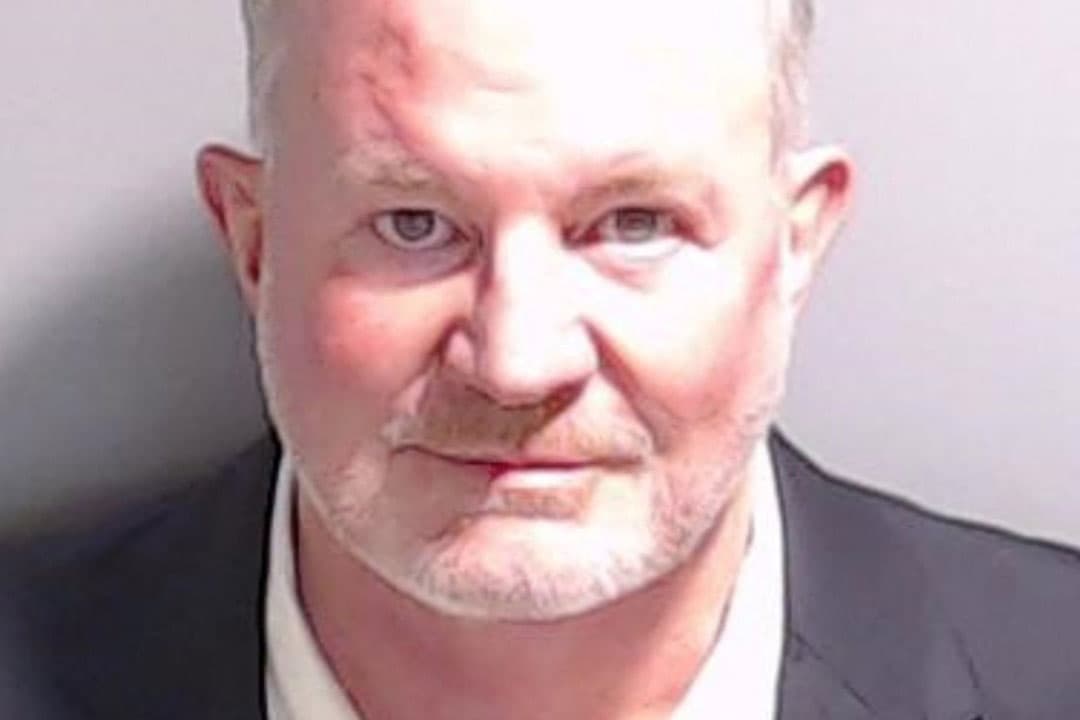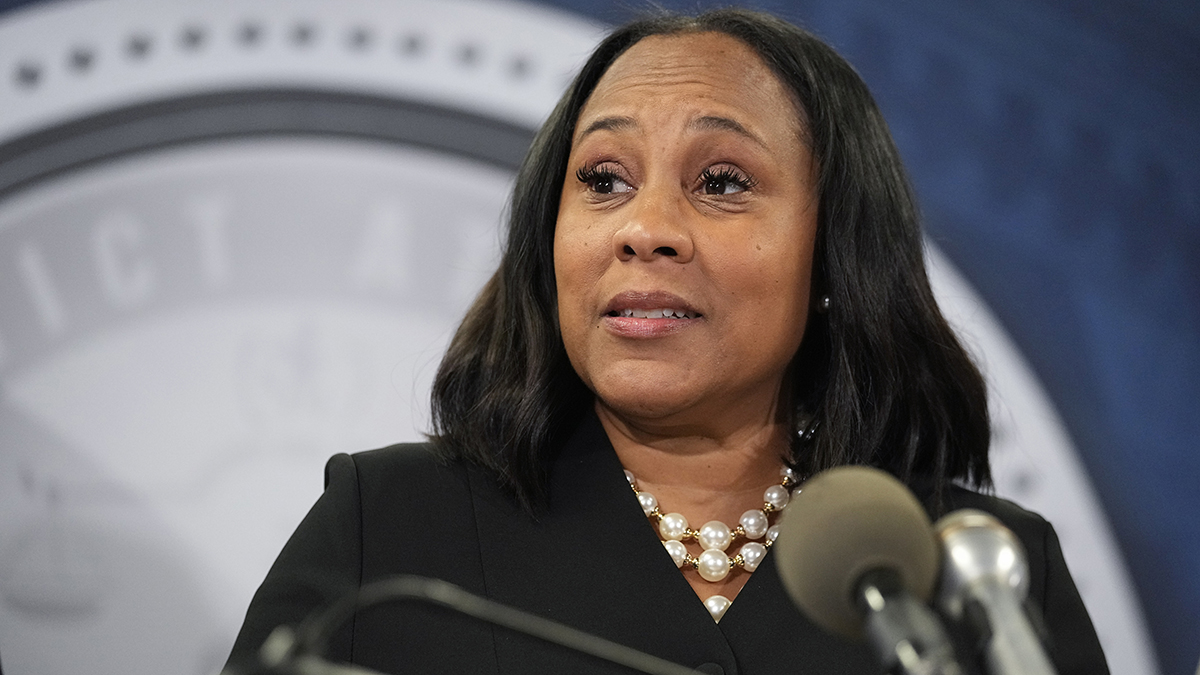
Lawyer Sidney Powell pleaded guilty to reduced charges Thursday over efforts to overturn Donald Trump’s loss in the 2020 election in Georgia, becoming the second defendant in the sprawling case to reach a deal with prosecutors.
Powell, who was charged alongside Trump and 17 others with violating the state’s anti-racketeering law, entered the plea just a day before jury selection was set to start in her trial. She pleaded guilty to six misdemeanors accusing her of conspiring to intentionally interfere with the performance of election duties.
As part of the deal, she will serve six years of probation, will be fined $6,000 and will have to write an apology letter to Georgia and its residents. She also recorded a statement for prosecutors and agreed to testify truthfully against her co-defendants at future trials.
Powell was initially charged with racketeering and six other counts as part of a wide-ranging scheme to keep the Republican president in power after he lost the 2020 election to Democrat Joe Biden. Prosecutors say she also participated in an unauthorized breach of elections equipment in a rural Georgia county elections office.
Get Tri-state area news delivered to your inbox. Sign up for NBC New York's News Headlines newsletter.
The plea deal makes Powell the most prominent known person to be working with prosecutors investigating Trump’s efforts to overturn the election. Her cooperation in the case and participation in strategy talks threaten to expose the former president and offer insight on what he was saying and doing in the critical period after the election.
Above all, the guilty plea is a remarkable about-face for a lawyer who, perhaps more than anyone else, strenuously pushed baseless conspiracy theories about a stolen election in the face of extensive evidence to the contrary. She also has important knowledge about high-profile events, including a news conference she participated in on behalf of Trump and his campaign shortly after the election and on a White House meeting she attended in mid-December of 2020 in which prosecutors say ways to influence the outcome of the election were discussed.
Powell’s only comments in court came in response to routine questions from prosecutor Daysha Young and the judge.
There was a moment of levity when Young asked, “How old are you, ma’am?”
“Oh gosh,” Powell said with a chuckle. “Sixty-eight, despite my astonishingly youthful countenance.”
But Powell was solemn and succinct when Young asked, “How do you plead to the six counts of conspiracy to commit intentional interference with performance of election duties?”
“Guilty,” Powell said, her hands folded in front of her on the defense table.
John Fishwick, a former U.S. attorney for the Western District of Virginia, called Powell’s plea a “significant win” for Fulton County District Attorney Fani Willis.
“This is somebody who was at ground zero of these allegations and a lawyer who is pleading guilty," he said. “This is very significant.”
Fishwick also said Powell's plea is helpful to Jack Smith, the Justice Department's special counsel.
Powell is referenced, though not by name, as one of six unindicted co-conspirators in Smith’s federal case charging Trump with plotting to overturn the election. That indictment notes how Trump had privately acknowledged to others that Powell’s unfounded claims of election fraud were “crazy,” yet nonetheless he promoted and embraced a lawsuit that Powell filed against the state of Georgia that included what prosecutors said were “far-fetched” and baseless assertions.
Barry Coburn, a Washington-based lawyer for Powell, declined to comment Thursday.
Powell gained notoriety for threatening in a Fox Business interview in November 2020 to “release the Kraken,” invoking a mythical sea monster when talking about a lawsuit she planned to file to challenge the results of the presidential election. Similar suits she filed in several states were promptly dismissed.
She was about to go on trial on with lawyer Kenneth Chesebro after each filed a demand for a speedy trial. Jury selection was still set to begin Friday for Chesebro to go on trial by himself, though prosecutors said earlier that they also planned to look into the possibility of offering him a plea deal.
Chesebro's attorneys didn't immediately respond to messages seeking comment Thursday on whether he would also accept a plea deal.
A lower-profile defendant in the case, bail bondsman Scott Graham Hall, last month pleaded guilty to five misdemeanor charges. He was sentenced to five years of probation and agreed to testify in further proceedings.
Steve Sadow, the lead attorney for Trump in the Georgia case, expressed confidence that Powell's plea wouldn't hurt his own client's case.
“Assuming truthful testimony in the Fulton County case, it will be favorable to my overall defense strategy,” he said.
More: Georgia election case
Prosecutors allege that Powell conspired with Hall and others to access election equipment without authorization and hired computer forensics firm SullivanStrickler to send a team to Coffee County, in south Georgia, to copy software and data from voting machines and computers there. The indictment says a person who is not named sent an email to a top SullivanStrickler executive and instructed him to send all data copied from Dominion Voting Systems equipment in Coffee County to an unidentified lawyer associated with Powell and the Trump campaign.
Trial dates have not been set for the 16 remaining defendants, including former New York Mayor Rudy Giuliani, who was a Trump lawyer, and Mark Meadows, who was the Trump White House's chief of staff.
Willis has faced some criticism over her wide-ranging indictment and use of the state’s anti-racketeering law to charge so many defendants. Some people had speculated that, if her case did not go well, it could undermine Smith’s case, Fishwick said.
“This certainly shows that at least, as of today, it’s not undermining it. In fact, it’s strengthening his case,” Fishwick said.
Associated Press writers Eric Tucker in Washington and Sudhin Thanawala in Atlanta contributed to this report.



